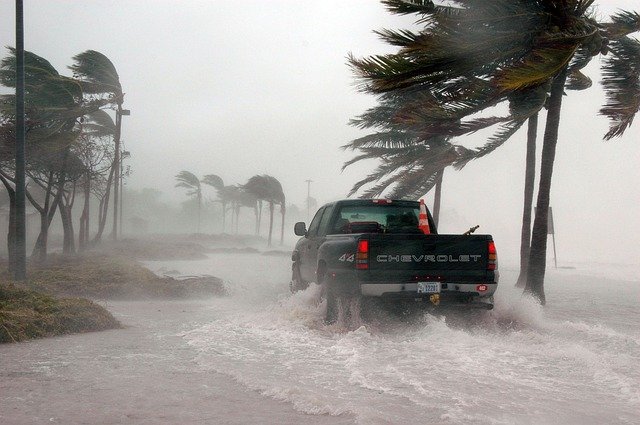Hurricane Season Begins — And Steps To Keep In Mind
Image by David Mark from Pixabay
Community associations near the Atlantic coast are preparing themselves for another season of rough winds, high seas, and devastating storms.
With an official start date of June 1, 2021, hurricane season in the mid-Atlantic is rapidly approaching, set to last until November 30, 2021. This has concerned many home and business owners in the area, who lived through a difficult 2020 storm season.
The National Oceanic and Atmospheric Administration (abbreviated NOAA) listed over 30 named storms last year alone. This included all 12 storms that touched down in the United States, as well as the 13 which developed into major hurricanes. Six of these hurricanes struck with winds topped at 111 miles per hour, qualifying as ‘major hurricanes’ on a national scale. Needless to say, storms associated with the 2020 hurricane season caused billions of dollars worth of insurance claims.
This year, the NOAA predicts an above-average storm season, with a 60% chance of developing 13 to 20 named storms. Almost 50% of these storms are projected to become major hurricane scenarios at Category 3 speeds or higher. These numbers have continued to rise exponentially over the past several decades.
“Property insurance is just like any other product; It does evolve and change. We encourage property owners and risk managers to really understand their exclusions written into their policy along with reviewing their hurricane deductibles. Ensuring that your flood insurance is up-to-date is especially important.” – Dan Flanagan, Chief of Sales at BluSky Restoration Contractors.
In order to maximize community storm-preparedness and protection, it is recommended to follow these steps:
-
Review any casualty insurance policies connected to the associations. This will help you to become familiar with any limitations, coverages, and claim expenses. Understand any deductibles and their costs up-front.
-
Be aware of any required amount of insurance coverage that may be specific to the community organization in question. Minimum and maximum coverages may be established for certain industries, and must be followed by organizations under North Carolina Law. According to N.C.G.S. Chapter 47C, condominiums built before or on October 1, 1986 must have enough insurance to cover 4/5 (80%) of common residential areas. In addition, other community areas such as single-family buildings or townhomes are subject to common space replacement costs. N.C.G.S. Chapter 47F states that all properties built on January 1, 1999 (or since) are held under this law. Both condominiums and townhomes under this legislation must be properly measured before the insurance is acquired. This also applies to every set insurance renewal date.
-
Every hurricane or storm touchdown will string multiple people together. Their effects on insurance claims may be significant, especially when dealing with first responders, construction officials, and related parties. Severe damage is likely to require intensive communications with multiple disciplines and companies, including any brokers, carriers, adjusters, and contractors or subcontractors.
-
During the claims and restoration process, be aware of all community associations and their patrons, stockholders, and influential members. Understanding where individuals fall in the chain of command and where to go from there will keep things running smoothly. Bear in mind that important persons may include members of a legal counsel, who prevent unnecessary litigation between contractors and community associations. A board or board-run committee is particularly good at managing points of contact, as well as reaching out to important players on the industry totem pole.
-
All community associations should be supplied with proper information about their insurance coverages and associated policies. Industry-specific policies work together to protect the association and all its volunteers. This is especially pertinent directly after a hurricane-related disaster. Leadership is able to make quick and reasonable decisions while under pressure. Additional insurance policies that may be helpful during hurricane disasters are Director and Officer Liability Insurance, General Liability Insurance, and other related Umbrella Policies.
-
Take time to observe the financial health and reserve savings of the community association in question. It is important to note that this should be done well ahead of time. Insurance policies do not always cover the total loss of a building or structure, and may require some out-of-pocket expenses moving forward. If the insurance policy will cover the damages, bear in mind that any claims or adjustment processes will take time to complete. The financial obligations of the community association will likely happen before any claims are finalized, requiring payments to general contractors, construction services, and other vendors responsible for the cleanup efforts. To counter this potential strain on finances, the community organization should have the necessary savings for a potential loss. The organization should also have mature lending relationships that could provide a solid line of emergency credit. Without this, the community organization could be placed in a desperate financial situation that could lead to bankruptcy.
-
Be sure to contact members of your “LAB”: Your legal team, insurance adjuster, and insurance broker. These vital members of your team should be continuously verifying any claims made by the community association and their vendors.
Hurricane season preparedness spans many disciplines, and this list should not be considered an exhaustive one. However, community associations along the Atlantic Coast should use this information as a starting point for ongoing storm preparedness.
To learn more about hurricane season prevention and preparedness, consult with disaster relief specialists in your area. Be sure to do as much research as possible before and during a storm outbreak, and stay informed of current weather patterns. Monitor the storm preparedness of your community associations carefully during the 2021 hurricane season.

